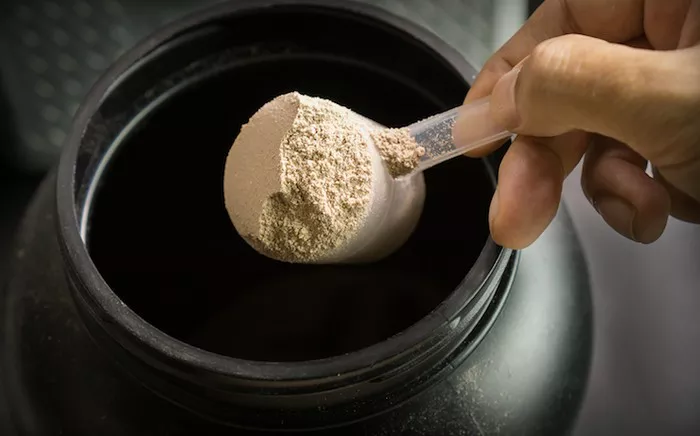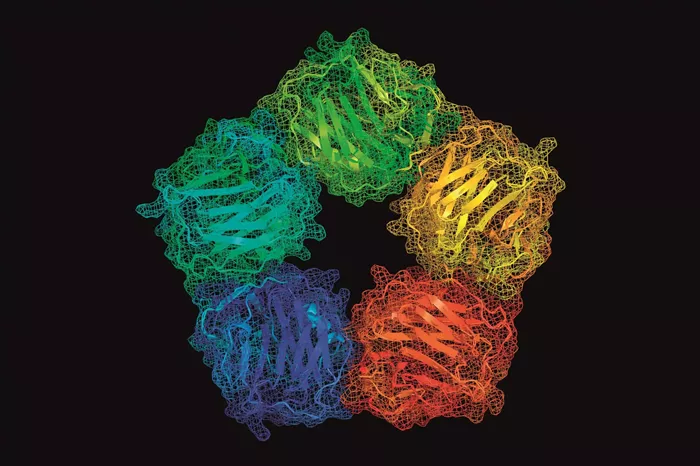Protein powders are a staple in the diet of many bodybuilders and fitness enthusiasts, providing a convenient and efficient way to increase daily protein intake. Essential for muscle repair and growth, protein is arguably the most important nutrient for anyone looking to build muscle and improve their physique. This comprehensive guide will delve into the various types of protein powders available, discuss their benefits and drawbacks, and help you determine the best protein powder for your bodybuilding goals.
Understanding Protein and Muscle Synthesis
Before diving into the specifics of each type of protein powder, it’s crucial to understand the role protein plays in muscle synthesis. Protein is made up of amino acids, often referred to as the building blocks of muscle. When you exercise, particularly during strength training, the muscle fibers are damaged and then repair themselves using the amino acids derived from protein. This process is what leads to muscle growth.
The quality of protein is determined by its amino acid profile and bioavailability, or how well it can be absorbed and utilized by the body. High-quality proteins contain all the essential amino acids in ratios that best support muscle repair and growth.
Types of Protein Powders
There are several types of protein powders on the market, each with unique properties that may suit different dietary needs and training goals.
Whey Protein
Benefits: Whey protein is one of the most popular protein supplements used by bodybuilders. It is a complete protein, meaning it contains all essential amino acids. It is particularly high in branched-chain amino acids (BCAAs), including leucine, which is critical for muscle protein synthesis. Whey is also known for its fast digestion and absorption, making it ideal for post-workout recovery.
Drawbacks: Some people are allergic or intolerant to lactose, which is present in small amounts in whey protein, potentially causing digestive issues.
Casein Protein
Benefits: Like whey, casein protein is derived from milk and is a complete protein. Its primary advantage over whey is its slow digestion rate, which provides a gradual, steady release of amino acids into the bloodstream. This makes casein ideal as a pre-bedtime supplement, as it helps prevent muscle catabolism during sleep.
Drawbacks: The slow absorption rate of casein is not ideal for post-workout recovery when rapid absorption is more beneficial.
Egg White Protein
Benefits: Egg white protein is a high-quality lactose-free option with a very high protein efficiency ratio. It contains all of the essential amino acids needed to support muscle recovery and growth.
Drawbacks: It can be more expensive than whey and casein and may not be suitable for vegans or those who avoid eggs.
Plant-Based Proteins
Benefits: Plant-based proteins such as pea, rice, and hemp protein are ideal for vegetarians, vegans, and those with allergies to dairy or eggs. These proteins are typically very digestible and hypoallergenic.
Drawbacks: Most plant-based proteins are not complete proteins (except for quinoa and soy), meaning they do not naturally contain all essential amino acids. Many are often combined to achieve a complete amino acid profile.
Soy Protein
Benefits: Soy protein is a popular plant-based option because it is one of the few complete vegetarian proteins. It contains all the essential amino acids and is particularly rich in BCAAs.
Drawbacks: Some studies suggest that high amounts of soy could influence estrogen levels due to its phytoestrogens, although more research is needed to confirm these effects.
Choosing the Right Protein Powder
Selecting the right protein powder depends on various factors including dietary restrictions, digestion and absorption preferences, taste, affordability, and specific bodybuilding goals.
Dietary Considerations
If you are lactose intolerant, plant-based or egg white protein might be the best option. For vegetarians and vegans, soy, pea, hemp, or a mixed plant protein would be appropriate.
Timing of Intake
For post-workout recovery, a fast-absorbing protein like whey is ideal. For overnight muscle repair, a slow-digesting protein like casein can be more beneficial.
Quality and Purity
Opt for protein powders that are low in additives and artificial ingredients. Additionally, looking at third-party testing and certifications can help ensure you are getting a high-quality product.
Impact of Flavor and Mixability on Consistency of Use
The flavor and how well the protein powder mixes with liquids can affect your likelihood of consistently using the supplement. It’s important to choose a protein that you enjoy consuming and that blends well in shakes or other recipes.
Conclusion
The best protein powder for bodybuilding depends on individual needs, preferences, and goals. Whey protein stands out for muscle growth and recovery, casein for sustained protein release, and plant-based proteins for those with dietary restrictions. When choosing a protein powder, it’s crucial to consider the quality, amino acid profile, digestion rate, and any personal dietary needs. By selecting the right protein powder, you can effectively support your muscle-building efforts and achieve your bodybuilding objectives.
[inline_related_posts title=”You Might Be Interested In” title_align=”left” style=”list” number=”6″ align=”none” ids=”8318,8314,8172″ by=”categories” orderby=”rand” order=”DESC” hide_thumb=”no” thumb_right=”no” views=”no” date=”yes” grid_columns=”2″ post_type=”” tax=””]































